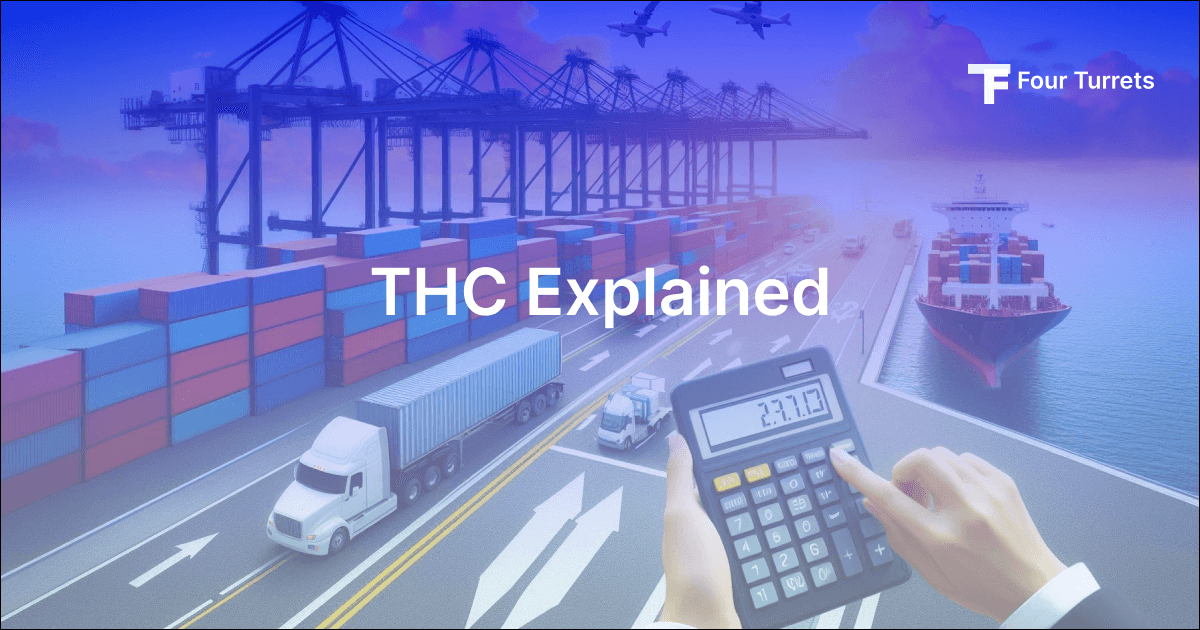You shipped a product to your customer and now are marked with various kind of other experiences in the process? Well, those are not random costs. In international trade and logistics, Terminal Handling Charges (THC) represent a critical yet often misunderstood component of shipping costs. These charges, levied by terminal operators, encompass the myriad activities required to manage cargo at ports and terminals. From the loading and unloading of goods to storage and inspection, THC ensures the smooth and efficient transit of merchandise.
As global trade continues to expand, comprehending the intricacies of THC becomes increasingly essential for businesses aiming to optimize their supply chain operations. This article delves into the fundamental aspects of Terminal Handling Charges, elucidating their significance, calculation methods, and impact on shipping expenses.
What is a Terminal Handling Charge?
Terminal Handling Charges or THC are fees charged by shipping terminals for the services provided in handling containers at both the port of origin and the destination port. These charges cover a variety of activities within the freight terminal, including stevedoring, container service charges (CSC), and other local charges. The THC charged can vary between different ports and is influenced by the shipping line and the specific port terminal involved.
When dealing with ocean freight, terminal handling charges are a significant component of the overall freight cost. These charges are applicable whether goods are being imported or exported. The freight charges often include THCs as a surcharge in the overall freight rate. According to Incoterms, the responsibility for paying these charges can fall on either the buyer or the seller, depending on the agreed terms.
At the port of origin, THCs are referred to as origin port charges, while at the destination terminal, they are known as destination THC or DTHC. These charges are essential for covering the cost of moving containers within the terminal, from port to port, and ensuring efficient handling at the container terminal. Shipping companies and shipping lines typically include these charges in their overall pricing structure, making it crucial for shippers to understand the impact of THCs on their total freight cost.
How to Calculate Terminal Handling Charges
Calculating Terminal Handling Charges (THC) involves understanding the various fees charged by the shipping terminals for the storage, loading and unloading of cargo. These charges are typically categorized into different types of THC, such as origin THC and destination THC. The charges at origin are incurred when the cargo is loaded onto the vessel, while destination THC is applied when the cargo is unloaded at the terminal. The fees charged by the shipping terminals can vary significantly, depending on the port or terminal and the specific infrastructure and equipment used.
THC is often calculated based on the weight or volume of the cargo, usually measured in terminal in units of tons. The specific charges usually depend on the type of cargo and the services required. For instance, certain types of cargo may require specialized handling, which can affect the overall cost. The different THC rates charged by the shipping terminals reflect these variations. Additionally, the cost of THC varies from port to port, influenced by local regulations, labor costs, and the efficiency of terminal operations.
To determine the total THC payable at the port, one must consider both the origin THC and the destination THC. These charges are typically included in the overall thc in the freight bill and are payable at the port where the cargo is either being loaded or unloaded. Accurate calculation of THC is essential for budgeting and financial planning in logistics and supply chain management, ensuring that all costs associated with the loading or unloading of containers to the port are accounted for.







